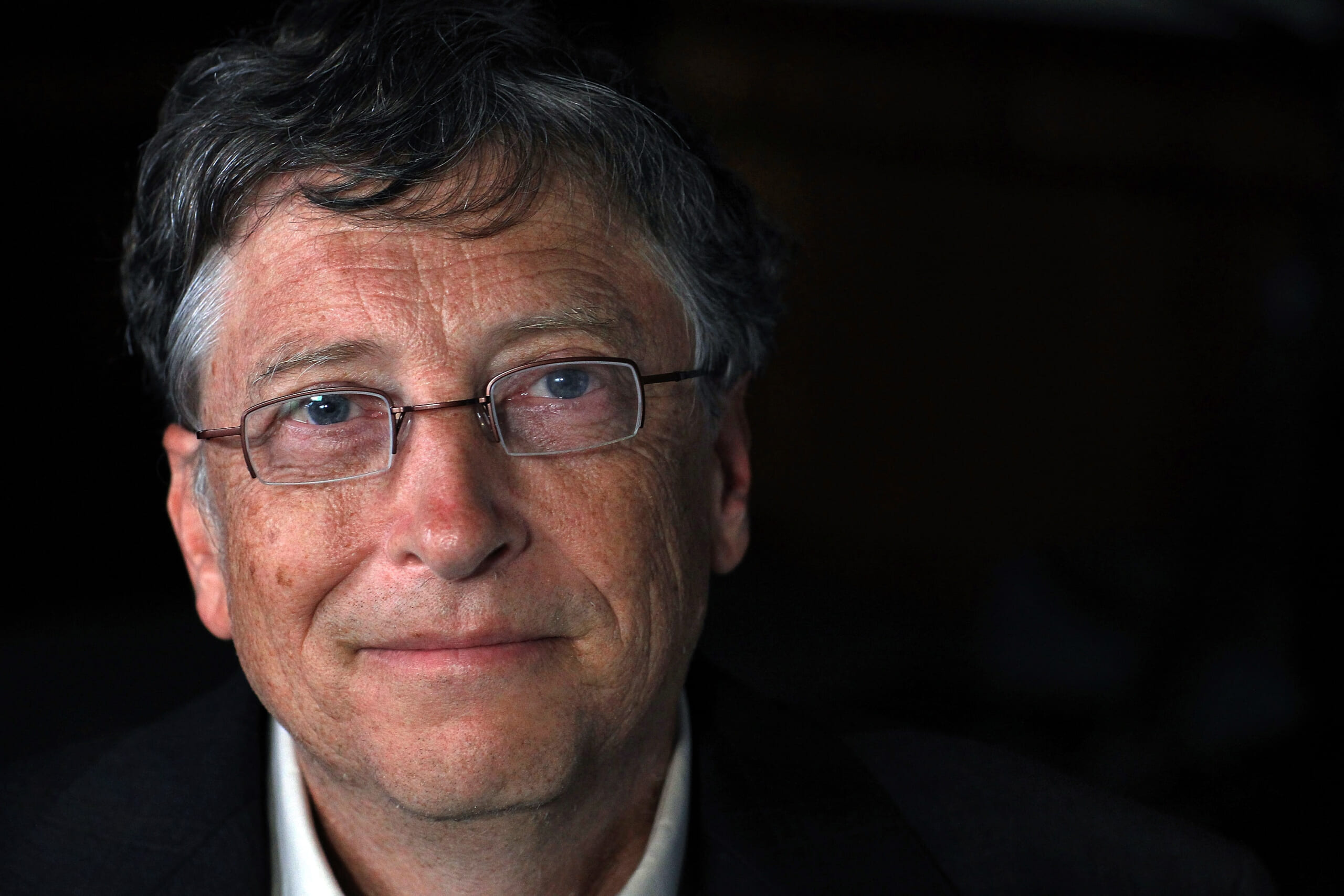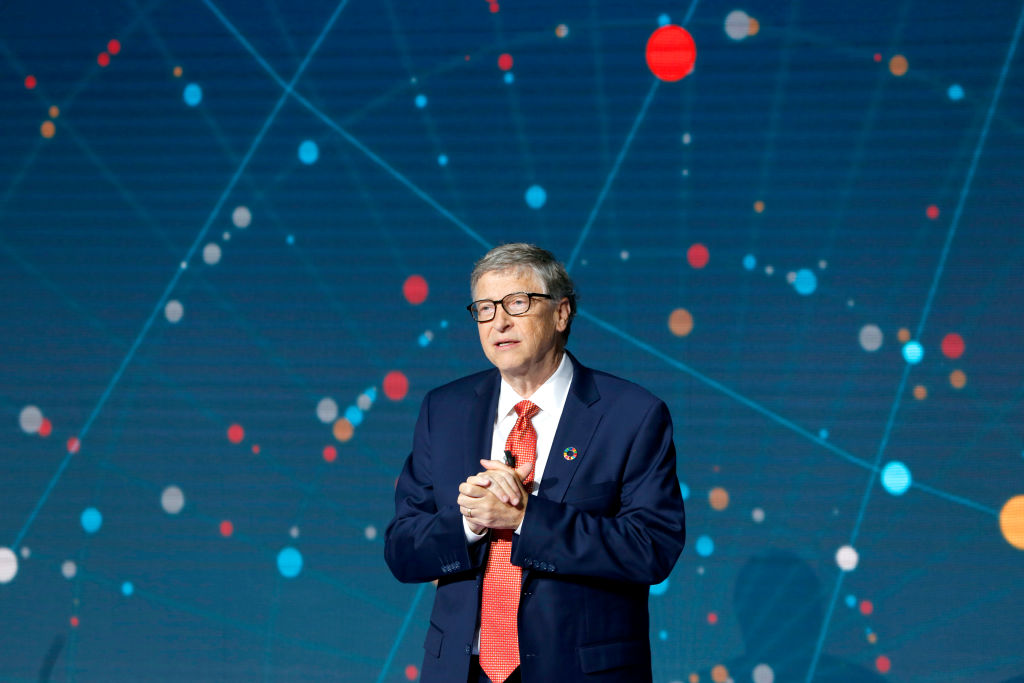Bill Gates Is Using His Fortune to Fight the Pandemic
The billionaire Microsoft founder’s Bill & Melinda Gates Foundation has already committed over $300 million toward COVID-19 vaccines and drug remedies.

The current coronavirus crisis begs the question: Is it inevitable that the salvation of America’s healthcare and economic meltdown won’t come from federal agencies, big business, or academia, but from the charitable largesse of billionaires like Bill Gates?
The man behind Microsoft has a history of drawing on his personal wealth to help cure diseases that have long eluded both governments and the World Health Organization. Gates and his wife, Melinda Gates, established their foundation in 2000 to foster biomedical innovations against infectious disease, and find inventive ways to distribute them. The 64-year-old entrepreneur has since seeded billions of his own net worth to fund humanitarian causes.
According to Forbes, the Bill & Melinda Gates Foundation announced the COVID-19 Therapeutics Accelerator this past March, with $125 million in funding to speed up the response to the epidemic by identifying, assessing, developing, and scaling up treatments. As co-chair of the most well-endowed foundation dedicated to global health and American education, Gates has taken on the pandemic that has killed more than 500,000 people worldwide (as of press time) and thrown the global economy into turmoil.
“COVID-19 has started behaving a lot like the once-in-a-century pathogen we’ve been worried about,” as Gates wrote in a February article for the New England Journal of Medicine. At multiple global summits, Gates had presciently cautioned leaders that the biggest potential threat the world faced wasn’t warfare, but a pandemic. Unlike most of them however he has taken action.

Is this noblesse oblige 2.0; a kind of engagement or participation we have not seen before? If the origins of the sentiment lie in the idea that there is an inferred responsibility of the privileged to act with generosity and nobility toward those less fortunate, Gates’ spin on it has little to do with privilege in the aristocratic sense. His take? He is compelled to act on what he knows. His life has been defined by the pursuit of knowledge, by the gravitas of education; if we know better, we must do better.
For Gates, it’s not really about obligation, it’s about his fundamental personhood. The origin story of “the American way” is for self-made captains of industry to manifest as self-made philanthropists, a model perfected by the likes of Andrew Carnegie and John D. Rockefeller. The pale, bespectacled Gates is certainly a sobering voice in the “let them eat cake” nouveau riche milieu of Kanye West.
Born William Henry Gates on October 28, 1955, in Seattle, Washington, Harvard’s most famous dropout went on to become the most successful entrepreneur of the 20th century. According to biographer JR MacGregor, the young upstart’s first exposure to personal computing came while he was attending Seattle’s elite Lakeside School. Along with fellow student Paul Allen, who would later become his Microsoft co-founder, he began cutting class to work in the school’s computer room.
When Gates was 16, he and Allen went into business together. How did this teen programmer flourish into a titan? Think one part consummate computing guru coding in beast mode before it was a thing, to two parts cunning businessman with shrewd marketplace savvy.
https://www.instagram.com/p/B8jwLAygWiP
This cocktail of traits enabled Gates to outwit competitors in the Klondike rush to set industry gold standards, first with MSDOS and later with Windows. In a mere quarter-century he built a two-man operation into the most successful corporation in the world. Yet he accomplished this not by inventing new technology, but by adapting existing technology to a specific market, then dominating said market through cunning business deals.
As wealth inequality reaches dangerous, disconcerting levels, social entrepreneurs like Gates have stepped up to save our broken institutions. Alexis de Tocqueville clearly thought highly of the American ethos of giving back. When the French diplomat observed in the 19th century that America was great because America was good, he wasn’t referring to our government. He was spotlighting the charitable chords struck by industrialist Arthur Tappan and merchant banker George Peabody, endowing robust and sound strength to the union.
In fighting the good fight, Gates emerges as a global citizen in his efforts to unite the powers that be in the face of this pandemic. The Wall Street Journal reports that Gates leveraged his ability to reach leaders of government.“I chose, when I met with people all the way up to the top, in Europe, in the U.S., around the world, to talk about this pandemic risk,” he said.
The Gates Foundation has already committed $305 million (at press time) to the creation of COVID-19 vaccines and drug remedies, as well as aid to get supplies to developing nations. Before the pandemic is over, Gates furthered to the Journal, “we will end up spending a lot more.” He urges world leaders to build national defenses against new infectious diseases. “My hope now is that leaders around the world, who are responsible for protecting their citizens, will take what has been learned from this tragedy and invest in systems to prevent future outbreaks,” he continued.
https://www.instagram.com/p/B1wYMNlAdBd
One of the most influential men on the planet, Gates still waits his turn in line at his preferred burger joint in Seattle when cravings kick in (it’s Dick’s Drive-In). While colonial-era tycoons may have overzealously showboated having the combined GDP of several African economies in their private bank reserves, Gates is too busy getting back to basics. As a young man accelerating past his peers, he couldn’t get out of academia fast enough. As an elder statesman, he is changing life on Earth. Eager to learn from the top minds in infectious disease epidemiology, he’s become an advocate and ambassador for science itself.
